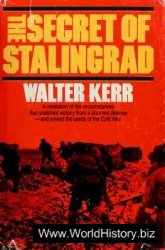It appears that Sargon's victory marked the first time that the land had a Semitic (seh-MIT-ik) leader, someone from the language group that would include most of the later Mesopotamian kingdoms as well as Israel and the Arab world. Sargon went on to conquer territory, earning for himself the titles “King of Universal Dominion”—that is, ruler of all that
Liu Pang
Like Sargon of Akkad, Liu Pang (lee-OO BAHNG; sometimes spelled Liu Bang; 256-195 b. c.; ruled 206-195 b. c.) rose from humble origins to become ruler of a great empire. Later given the name Kao Tsu (gowd-ZOO), he founded the Han Dynasty, which would rule China for some four centuries. So great was the influence of the Han that, although the English name for the country comes from the earlier Ch'in Dynasty, the Chinese typically refer to themselves as "the Han people."
Born the son of peasants, Liu Pang grew up in a time of troubles as the Chou Dynasty (ZHOH) passed to the Ch'in. In 221 B. C. the Ch'in ruler Shih Huang Ti became China's first emperor. Liu went to work as a police officer. There were plenty of police under the Ch'in dictatorship. Liu Pang became one of many who longed to see the cruel empire overthrown.
Eventually he became leader of a rebel force; so too did Hsiang Yu (shee-AHNG yoo-EE; sometimes spelled Xiang Yu; 233-202 B. C.). The two rivals came from very different backgrounds: Hsiang Yu was a nobleman, and when he captured the capital city in 206 b. c., it seemed certain
That he would become the new emperor. But in fact Liu Pang managed to overcome the forces of Hsiang Yu, and the latter became a tragic figure celebrated in the classic Chinese opera Xiang Yu the Conqueror Bids Farewell to His Concubine.
Liu Pang went on to found an empire that allowed the Chinese people considerably more freedom than the Ch'in Dynasty had. On the other hand, Liu Pang had no mercy on his enemies, and (perhaps because he knew about rebellion firsthand) he crushed any attempt to revolt against him. He was a friend to the peasants of China, lowering their taxes and strengthening the agricultural economy, but as an uneducated and possibly illiterate peasant himself, he had little use for scholars.
The followers of Confucius (see entry) would not come into favor until later, under the most famous Han emperor, Wu Ti. Another legacy of Liu Pang was the tradition of peasant-led uprisings. More than 2,100 years later, widespread discontent would help bring another peasant warlord, Mao Zedong—China's most influential leader of modern times—to power.
Exists—and “the Great." He marched southward, taking cities as he went, then symbolically washed his weapons in the Persian Gulf. This would be a gesture used many times by ancient kings, most often meaning that their conquests were finished. In Sargon's case it was not true.
He added all of Sumer to his holdings, then began moving north and west all the way to what is now southern Turkey. Next, he marched eastward, making many conquests until he controlled a large part of Mesopotamia and lands beyond. It was later said that he sent armies to India, Egypt, and Ethiopia. It is unlikely he would have had much success in North Africa, because the extremely powerful pharaohs of the Old Kingdom were then in control.
It is certainly probable, however, that Akkad under Sar-gon had trade contacts with civilizations as far away as the Indus Valley; Oman (oh-MAHN) on the Arabian Peninsula; and possibly even Crete. To administer his vast empire, Sargon put Semitic officials in charge over cities far and wide. He also built a capital at Agade, not far from Kish. There, according to surviving records, he ruled a huge court: “5,400 men ate bread daily before him.”




 World History
World History









